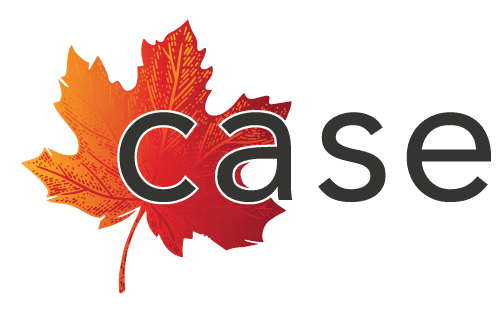Employers
Boost organizational performance by building an inclusive workplace
One in five working-age Canadians in the labour force experiences some form of disability.¹
Count five people around you at work and chances are one is experiencing disability.

Disability can be visible or invisible. It can be permanent, temporary, or episodic (occurring occasionally and irregularly).
Like all job seekers, persons who experience disability seek interesting employment with job security, competitive income, and career advancement opportunities.
Persons experiencing disability often face barriers in the workplace.
While persons experiencing disability work in all sectors across the country, they can encounter barriers in the workplace that can:
- Discourage them from applying for a job
- Affect their performance during an interview
- Impact their day-to-day work
- Impede their career advancement
When we remove barriers and build inclusive workplaces, we support at least one fifth of our workforce.
Many accommodations can also benefit all workers, as well as clients and customers.
Diverse teams where all workers feel supported show increased innovation, productivity, and organizational performance.
Some types of disability include:
- physical disability
- developmental disability
- cognitive disability
- neurodivergence (example: ADHD, autism)
- mental health challenges (example: depression, anxiety)
- substance use disorders
Intersecting Identities
Persons who experience disability and have intersecting identities may face additional workplace barriers as they navigate employment.
Intersecting identities can include:
- Racialized groups (example: Black Canadians)
- Indigenous Peoples
- 2SLGBTQIA+
- Newcomers
- Persons with incomes below poverty level
- Age (example: seniors and youth)
What HR, employment, or inclusion challenge are you facing today?
- Labour shortage
- Low staff retention
- Limited knowledge about accessibility, disability, and workplace inclusion
- Where to start to create an inclusive workplace
- Less capacity to focus on inclusive policies and practices
- Fear of making mistakes around inclusion
- Seeking meaningful ways to support DEI in the workplace
- DEI strategies in place but organization not attracting or retaining talent
- Reluctant to make “big asks” of local employment specialists at community organizations
We can help.
The Canadian Association for Supported Employment (CASE) works with employers, industry associations, employment service providers, and community allies towards the employment inclusion of persons who experience disability.
We provide employers with complimentary offerings to help them build inclusive workplaces:
- Practical resources and toolkits
- Online learning opportunities
- Short mentorships to strengthen employee engagement and learning around inclusion
- Regional and national networking events
- Innovative tools and programs that help to reduce barriers
CASE’s network of community-based supported employment service providers can:
- Help to connect employers with skilled job seekers experiencing disability.
- Provide tailored support to employers and job seekers to assist with inclusive recruitment, retention, and career advancement.

A National Initiative by the
Canadian Association for Supported Employment
More than a Mentorship Initiative
400+ employers engaged
1,000+ networking and learning events hosted

CASE's Abilities at Work Advisory Committee
Employers on CASE’s Abilities at Work Advisory Committee are active in the development of inclusive and diverse workplaces.
They contribute their insights and experiences to help drive business success.
Building an inclusive workplace culture benefits everyone.
- When employees feel included and think their organisation is committed to and supportive of diversity, employees report better business performance in terms of ability to innovate, responsiveness to changing customer needs, and team collaboration.
Source: Waiter, is that inclusion in my soup? A new recipe to improve business performance. Research report. Deloitte Australia. 2013.
- Research shows that diversity of thinking is a well-spring of creativity, enhancing innovation by about 20 percent. It also enables groups to spot risks, reducing these by up to 30 percent, and smooths the implementation of decisions by creating buy-in and trust.
High-performing teams are both cognitively and demographically diverse. By cognitive diversity, we are referring to educational and functional diversity, as well as diversity in the mental frameworks that people use to solve problems.
Source: “The diversity and inclusion revolution: Eight powerful truths.” Article. Deloitte Review. January 2018.
- A Tim Hortons franchisee in southern Ontario has never made an insurance claim for a work-related injury to an employee with a disability, despite employing 85 people who experience disability over 18 years.
Source: Rethinking Disability in the Private Sector: We All Have Abilities. Some Are Just More Apparent than Others - Report from the Panel on Labour Market Opportunities for Persons with Disabilities. Report. Government of Canada. 2013.
- Ready, Willing and Able (RWA), a national partnership of Inclusion Canada, Autism Alliance of Canada, and their member organizations, increases the labour force participation of people with an intellectual disability or on the autism spectrum. Businesses have rated employees hired through RWA as follows:
- 99% as well as or better than average on their contribution toward a positive workplace morale
- 99% as well as or better than average on their attitude toward work
- 97% as well as or better than average on turnover
- 88% as well as or better than average on contributing to the firm’s profit margin
- 76% as well as or better than average on productivity
- 94% better than average on punctuality
- 95% better than average on attendance and use of sick days
- 90% as well as or better than average on getting along with customers/clients
Source: Ready, Willing and Able website. Accessed May 29, 2024.
- On its special events team, a Canadian NHL team hired people experiencing mental health and physical disability. Since they joined, there has been a marked reduction in turnover in the 250-strong workforce, as well as increased knowledge of disability issues among supervisors.
Source: Rethinking Disability in the Private Sector: We All Have Abilities. Some Are Just More Apparent than Others -Report from the Panel on Labour Market Opportunities for Persons with Disabilities. Report. Government of Canada. 2013.
Most accommodations are simple and involve little or no cost. Examples include a tailored interview format, flexible scheduling, working remotely, a speech-to-text app, a noise-cancelling headset, a job coach for onboarding provided and paid for by a local agency, a checklist for tasks, or a reminder from a supervisor or co-worker when it’s time to take a break.
- Some benefits of reasonable accommodation can include:
- Demonstrating that you offer an inclusive working environment, which can assist in reducing discrimination and promoting employee engagement.
- Ensuring that employees have what they need to bring their full suite of talents and expertise to their roles.
- Facilitating a swifter and smoother return to work following absences on sick, maternity, paternity, or parental leave. A smooth return to work reduces the costs arising from absenteeism and staff turnovers.
- Benefitting customers, such as an accommodation that makes the physical environment more accessible for all those with reduced mobility.
Source: Promoting Diversity and Inclusion through Workplace Adjustments: A Practical Guide. Guide. International Labour Organization. 2016.
- One study found the benefits from making workplace accommodations far outweigh their associated costs, including:
- retaining valuable employees,
- improving productivity and morale,
- reducing workers’ compensation and training costs, and
- improving company diversity.
More than half (56%) of the employers reported the accommodations they made cost absolutely nothing to implement. Another 37% reported the accommodations involved only a one-time cost, with a median cost of $300.
Source: Survey by Job Accommodation Network (JAN) in the U.S. with 4,447 employer surveys completed between January 1, 2019 and December 31, 2023.
When people are empowered, accepted, and heard, everything else falls into place.
Complimentary CASE Resources to Strengthen Inclusion in Your Workplace
MentorAbility Canada
Mentor a person experiencing disability, network with employers and service providers, and gain applicable knowledge for you and your staff.
HR Inclusive Policy Toolkit
Improve organizational policies for setting the stage, hiring, and retention with CASE’s HR Inclusive Policy Toolkit.
Online Training
Take short, asynchronous, and self-directed online courses to help you strengthen workplace inclusion.
Informative Newsletter
Subscribe to our monthly employer e-newsletter, Disability Inclusion Advantage, for practical tips, case studies, and resources.
Innovation Lab
Read about supported employment innovations facilitated by the CASE Innovation Lab that help to reduce employment barriers.
Resource Hub
Discover our library of 400-plus resources about supported employment and inclusive workforces. Search by word, topic, and type of resource.
Disability Employment Awareness Month (DEAM)
Take part in Disability Employment Awareness Month (DEAM) every October and celebrate your inclusion stories!
Abilities at Work Advisory Committee
Join the CASE employer advisory group and share your experiences and insights of inclusive workplaces.
Contact an Employer Engagement Coordinator
Contact one of our Employer Engagement Coordinators to discuss your labour and inclusion needs and potential next steps.
Newsletter
Sign up for our e-newsletter and stay current with all the latest from CASE and supported employment work across Canada and beyond. You’ll also receive our latest promotions and offers. We will not share your email address with any third-party vendors. See our Privacy Policy for full details on how we protect your personal information.
Connect With CASE
Tell us about new, innovative supported employment initiatives your organization is spearheading. Please send us your ideas or advice on how CASE can better serve you.

